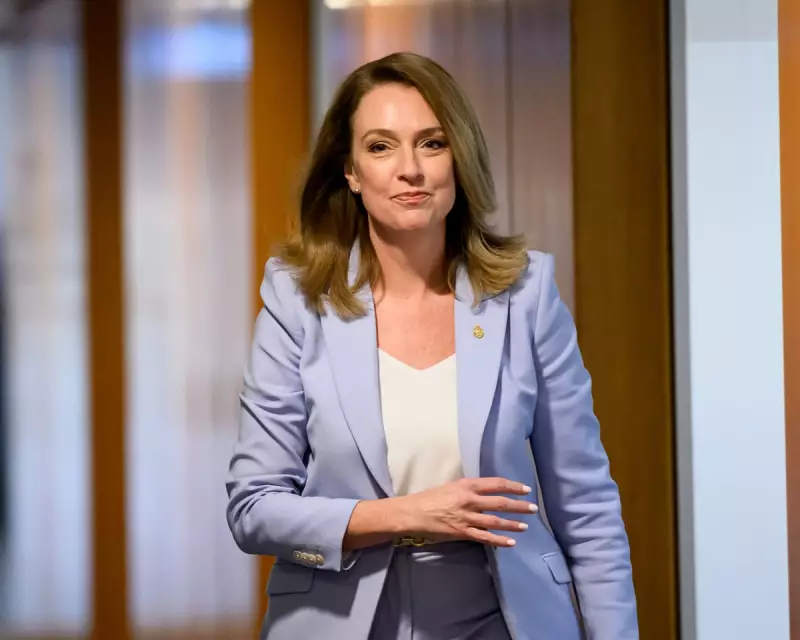
Kellie Sloane confronts a perilous political journey as she assumes leadership of the New South Wales Liberal Party, carrying the substantial weight of reviving a struggling political force in Australia's most populous state.
The Stakes for Sydney's Aspirational Heartland
The sudden elevation of female leaders across Liberal parties nationwide might appear as a desperate strategic shift, but Sloane's mission extends far beyond mere cosmetic changes. The future of the Liberal movement hangs in the balance, particularly in an aspirational capitalist hub like Sydney. If the party cannot resonate with NSW voters, its prospects appear decidedly grim.
From her first day in office, Sloane must navigate treacherous internal party dynamics and manage the Coalition relationship with the NSW Nationals while confronting monumental policy challenges including climate change, housing affordability, environmental conservation, and managing Sydney's growth as a megacity.
Distinguishing State from Federal Liberals
Sloane's immediate priority involves clearly separating the NSW Liberal brand from her Canberra counterparts, whose public self-destruction has reached what many describe as farcical proportions. The responsibility resting on her shoulders exceeds that of other state Liberal leaders because the NSW branch still claims to represent Robert Menzies' broad church tradition, though this assertion appears increasingly tenuous.
The NSW party membership has dwindled below 10,000 members with an ageing demographic, creating genuine risk of disconnection from mainstream Australia. Political parties require robust membership bases not only for fundraising and staffing polling booths but also for generating fresh ideas and energy.
Departing leader Mark Speakman openly acknowledged the federal party's damage, noting he had been within striking distance of the Minns Labor government until the Liberals' crushing federal election defeat in May and subsequent public brawling over climate policy.
Climate Policy Divisions and Housing Challenges
In contrast to federal turmoil, the NSW Liberals recently reaffirmed their commitment to net zero emissions by 2050, with Sloane confirming interim targets remain intact, including a 70% reduction in greenhouse gases from 2005 levels by 2035.
Speaking with Guardian Australia, Sloane downplayed the significance of policy differences between state and federal colleagues, though climate represents a substantial divergence. Federal government actions directly influence state-level planning, making alignment crucial.
Sloane maintains the NSW Liberals support renewable energy expansion supplemented by gas, alongside the planned phase-out of coal-fired power stations in NSW. She acknowledges practical realities, noting that coal-fired stations won't operate beyond 2033, with Eraring power station's lifespan already extended and potentially requiring further extensions.
The new leader emphasises addressing immediate community concerns about energy bills and managing the renewable transition, particularly in regional areas where she observes emerging divisions between 'haves and have-nots'.
On housing, both major parties prioritise boosting supply as Sydney prices continue their upward trajectory, though they differ significantly on implementation. Labor advocates rapid medium and high-density development around train stations, directly targeting traditionally Liberal-voting suburbs that have long resisted such changes.
Sloane initially appeared hesitant about increased density in her Vaucluse electorate, opposing medium density in Rose Bay by questioning its status as a proper town centre due to the absence of a 'decent supermarket'. She has expressed caution about Labor's plan for 10,000 homes above a new Woollahra station, though she recently indicated support subject to proper planning.
The Liberal approach distinguishes itself by emphasising community building alongside housing construction. Sloane criticises Labor's 'thought bubbles' like the abandoned Rose Hill racecourse suburb proposal, arguing failure to meet housing accord targets and develop proper business cases undermines social licence for development plans.
However, comprehensive planning requires time—precisely why Labor has adopted more direct policies to drive density in resistant areas, though they still trail behind established targets.
Transport Funding and Privatisation Dilemmas
Speakman committed to expanding Sydney's metro system without specifying locations, while Transport for NSW has outlined potential future projects in medium-term planning, though none have been properly costed.
Sloane admits she's still familiarising herself with metro funding details but assures responsible financing under a Liberal government. The related challenge involves privatisation options, which have diminished since the previous Coalition government funded metros through 'asset recycling'—selling mature government assets like electricity infrastructure.
Current legislation blocks Sydney Water's sale, while other government-owned toll roads will soon fund toll subsidies for western Sydney, further limiting potential revenue sources for future infrastructure projects.
The path forward for Kellie Sloane and the NSW Liberals remains fraught with challenges that will test her leadership and the party's relevance in modern Australian politics.





